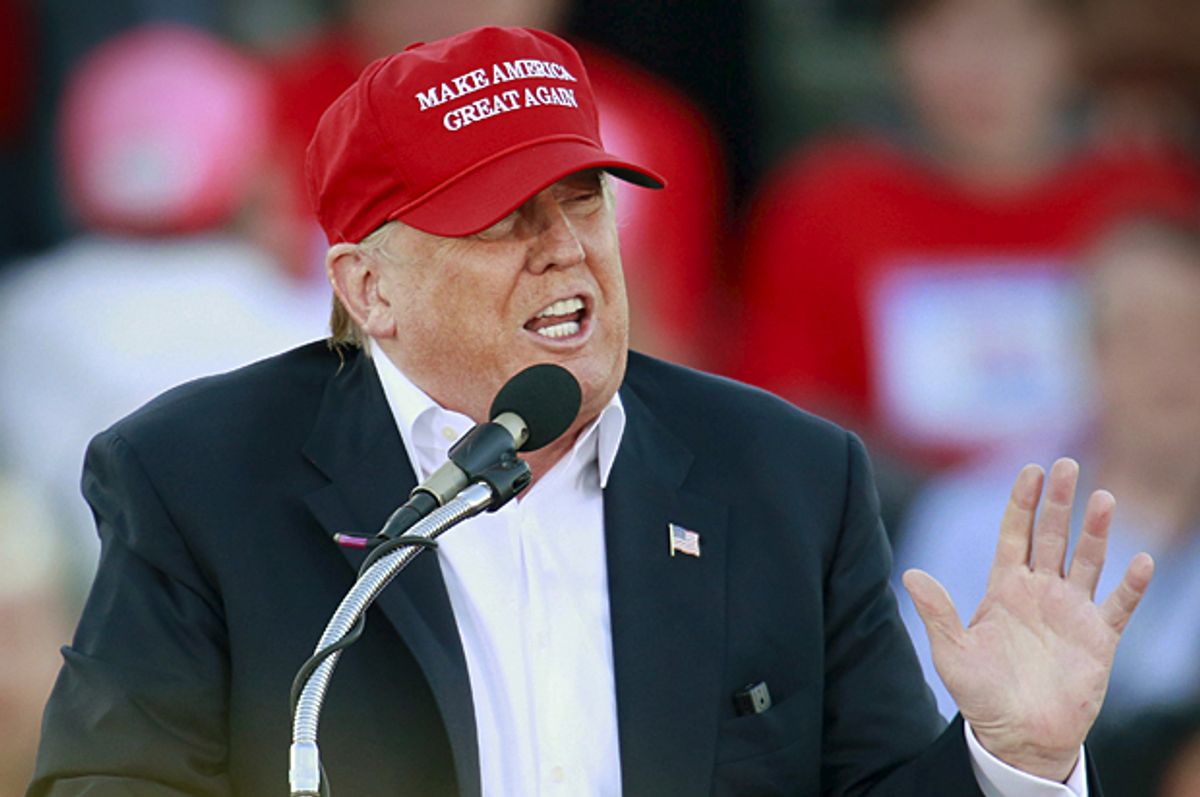Last November millions of people cast a presidential ballot for Republican Donald Trump after having voted for his Democratic predecessor, Barack Obama. According to one poll, nearly 20 percent of people who voted for Trump said they approved of the job that Obama was doing at the time.
Given how completely different Trump and Obama are in terms of personality and policy, political scientists have been at work trying to figure out what was going through the heads of these voters who had formerly voted for the Democrat. Lots of interesting research has been pushed out and more continues to be distributed almost every week.
Washington Post writer Aaron Blake dug through some focus group interviews that Republican pollster Glen Bolger conducted with Obama voters who opted for Trump in Michigan and Wisconsin last month and found some interesting quotations. Many of the people interviewed appear to have made their choices almost purely based on personal appeal rather than on the politicians' stated issue positions.
Several of the people had very negative things to say about their pick, Donald Trump. One of the Wisconsin women appears to have thought Trump was prone to making racist statements but she still voted for him because he was an underdog: “They made Trump, I think — I, well, I shouldn't say it was the media's fault, it was pretty much his mouth's fault — but he made himself look like a very mean, cruel person that just was very racist. And I thought he would, everyone was going to vote for Hillary because of that.”
Another Wisconsinite, a man, appeared to think that because Trump lies so frequently and poorly, this somehow was a reason to vote for him: “I think they all lie, but Trump was more — is more obvious," he was quoted as saying.
One of the women from Wisconsin appeared to suggest that she had primarily voted for Obama because of his black ancestry: "I voted for Obama too, because, I mean, there's always been a white person, obviously, in office. I mean, he was of African descent, so I voted for him thinking I would change a little bit of the race issues that we had going on and make the colored people feel better, like they have a black person in office.”
While focus groups are interesting, however, they are of only limited use since they are essentially anecdotes. Luckily, some new data has emerged on the topic as well.
A new poll commissioned by the super PAC Priorities USA of 800 people who had voted for Obama in 2012 but chose Trump in 2016 or decided not to vote at all also supports this thesis. This latter group of people were termed "drop-off voters" in the report. (The Washington Post's Greg Sargent provided a full PDF of the research.)
According to the study, 30 percent of the respondents said their backing Trump was more of a vote against his Democratic opponent, Hillary Clinton, than about affirmatively choosing him.
The drop-off voters expressed a strongly negative view toward the Republican Party and Trump. Ninety-two percent of them said they believed that Trump's economic policies would favor wealthy Americans. Ninety percent said the same about the congressional GOP.
The respondents who had switched between Obama and Trump answered those questions very differently, however. They also appear to view Trump as a different type of Republican.
Just 21 percent of the "Obama-Trump voters" said they believed the president's economic policies would benefit the wealthy. More than three-quarters — 77 percent — said Trump would work for all groups equally or favor the middle class.
By contrast, 40 percent of the Obama-Trump voters said that congressional Republicans would favor the wealthy. Forty-two percent of the respondents said that the Democrats in Congress would do the same.
Given Trump's repeated promises to not cut Medicare and Social Security funding and his pledges to create a health care system that would "take care of everyone," it's not exactly a surprise that at least some people took him at his word.
But lifestyle issues also appear to have played a role in the Trump victory as well. At the very least, there appears to have been some correlation. Due to the way that left-leaning voters are highly concentrated in just a few urban areas, the Democratic Party is more vulnerable in less-populated regions that have become more culturally conservative over time.
New research from political scientists Ron Lesthaeghe and Lisa Neidert of the University of Michigan suggests an extremely strong correlation between attitudes toward family life and voting patterns. Beginning with the 1996 presidential campaign of Democrat Bill Clinton and Republican Bob Dole, people with more conservative stances on motherhood, abortion and same-sex marriage have strongly gravitated toward the GOP.
Summarizing the Lesthaeghe and Neidert study and some related research, The New York Times' Thomas B. Edsall noted that even as Trump has been reneging on some of his progressive promises, his support has remained strong due to his pugnacious attitude toward educated urbanites, whom rural and small-city Americans have grown to hate:
"Trump’s basic approach — speaking the unspeakable — is expressive, not substantive. His inflammatory, aggressive language captures and channels the grievances of red America, but the specific grievances often feel less important than the primordial, mocking incivility with which they are expressed," Edsall wrote. "In this way, Trump does not necessarily need to deliver concrete goods because he is saying with electric intensity what his supporters have long wanted to say themselves."
The Priorities USA report tells Democrats that the way to win back Obama-Trump voters is to tie the current president to his party. Over time, this is likely to work. But in the short term, some of the attitudinal changes recommended by the Atlantic's Conor Friedersdorf might also prove useful as well.

Shares